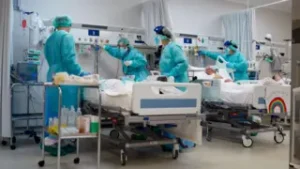Widower hopes for answers as surgeon inquests loom
Catherine Coyne’s husband describes the family’s ordeal as inquests into 62 deaths begin.
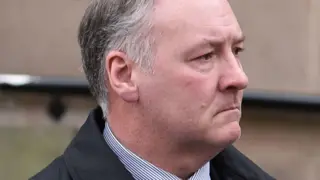
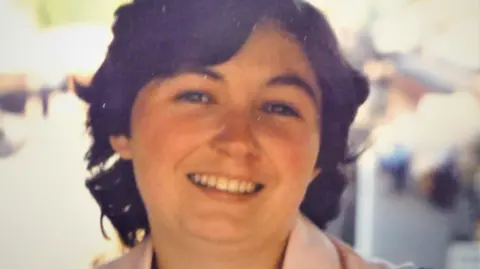 Family
FamilyA woman who was treated by jailed breast surgeon Ian Paterson died before questions emerged over her surgery and the secondary cancer that followed, her husband said.
Catherine Coyne’s death is one of 62 being investigated in inquests opening in Birmingham into deaths of Paterson’s patients.
Her husband Stuart has told how, as the family grieved, questions emerged over a “cleavage-sparing” procedure that was not recognised by authorities, where breast tissue was left behind.
He said his wife developed secondary cancer in 2004 and died four years later, before the term “cleavage-sparing” entered the public domain.
Mr Coyne described how his wife underwent procedures, along with chemotherapy and radiotherapy, and was left with “two small mounds on her chest wall”.
He said: “She had assumed that that was the correct procedure.”
And he said Paterson had a good “bedside manner” and was reassuring to them both.
But he said neither of them realised she had not had a proper mastectomy, and Mrs Coyne went on to develop secondary liver cancer in 2004.
After she died at home in Hampton Coppice, Solihull, the family were doing their best to move forwards when “rumblings” began in the local press in 2010-11.
Reports began questioning whether a so-called cleavage-sparing mastectomy was a correct procedure for patients.
He said: “We were thinking if she’d had the full flat-chested mastectomy would that have meant to say there would not have been a secondary cancer situation?
“Obviously it did raise those thoughts and concerns and it makes you feel, I suppose, angry, that maybe a correct procedure wasn’t carried out.”
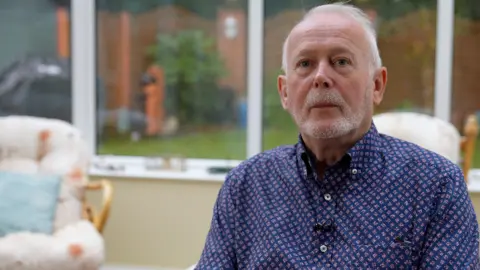
Mrs Coyne, a data protection officer, had worked in several roles at Birmingham City Council, before she took ill-health retirement.
Mr Coyne, an engineer who met his wife as a teenager and married her in 1986, remembered her bravery and resilience throughout her treatment, and how she “always stayed positive”.
He said it came as a “complete shock” when the family was contacted by the coroner and told Mrs Coyne’s case was being investigated.
They hope her inquest will finally give them some answers.
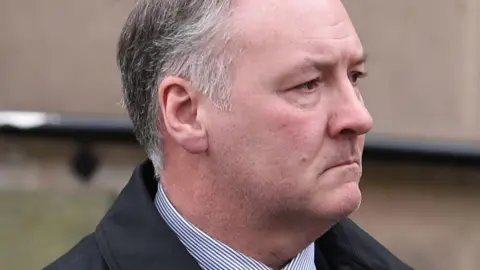 PA Media
PA MediaLong-running inquiries into the deaths of Paterson’s patients saw preliminary coroner’s inquiries in 2020, with more than 50 cases listed.
Last year, Judge Richard Foster was appointed as the coroner to carry out investigations because of their complexity, scale and time commitment, with hearings expected to last two years.
Eight cases were added to the list last month and more are being examined in the hearings at Birmingham and Solihull Coroner’s Court, which are being held without a jury.
The coroner said in September that a further 20 inquests are due to be opened while hearings are under way and he expects there to be more cases.
On Monday, the inquest is expected to hear submissions on a request by Paterson to adjourn proceedings.
A timetable for the proceedings said there would also be arguments that the coroner has a duty to provide Paterson with funding for legal representation and expert evidence.
Prison move anger
Paterson was jailed in 2017 and is serving 20 years.
But days before proceedings were due to begin, a decision to transfer Paterson to an open prison sparked anger among families affected, who said they had not been informed, and a petition to try to stop the move.
Mr Coyne said the authorities had not considered the people it would affect and branded it a “disgrace”.
The Ministry of Justice apologised for the miscommunication and any distress caused.
Saqib Bhatti, Meriden and Solihull East MP, has written to Justice Secretary Shabana Mahmood asking her to consider calls to review and reverse the decision as a matter of urgency.




